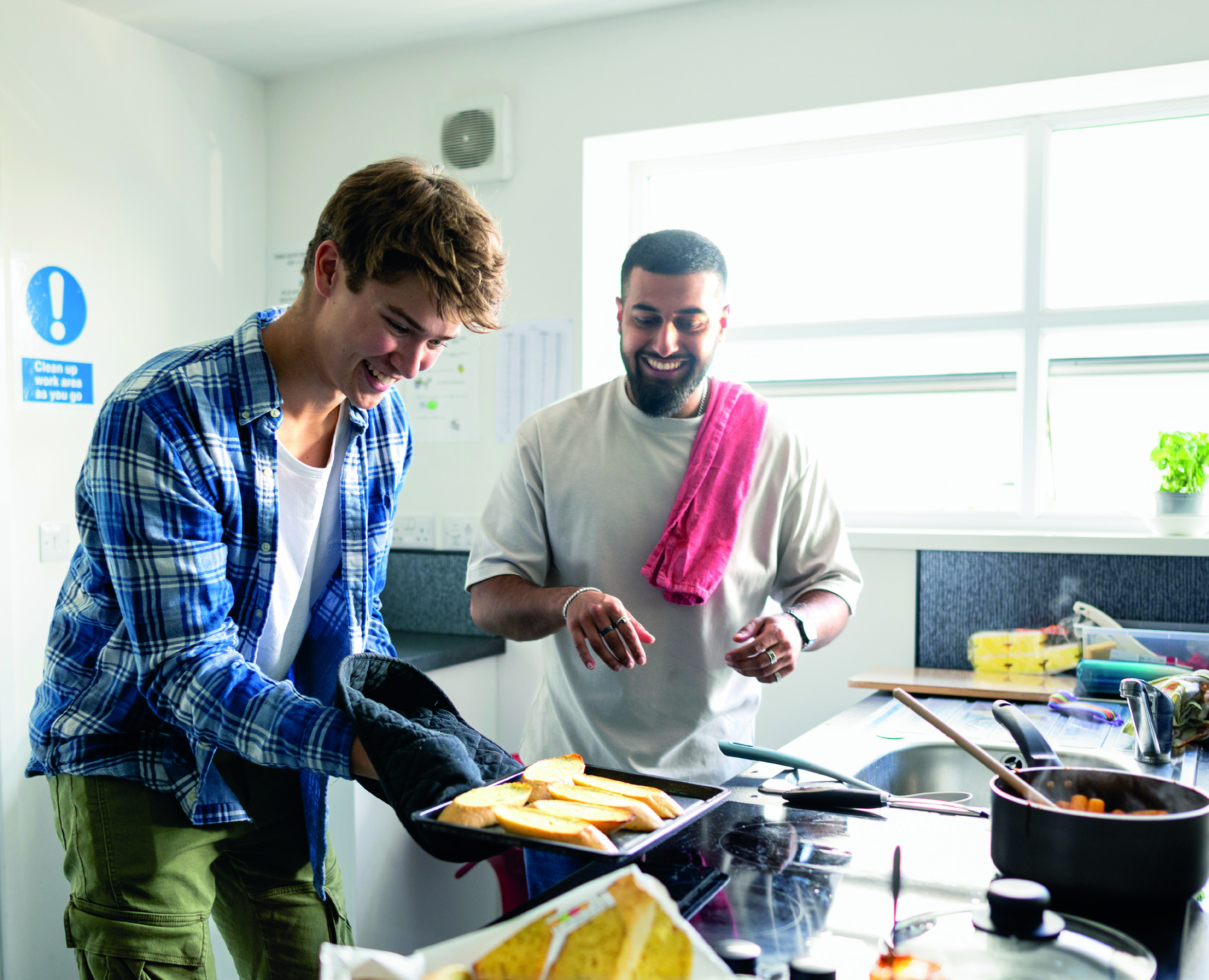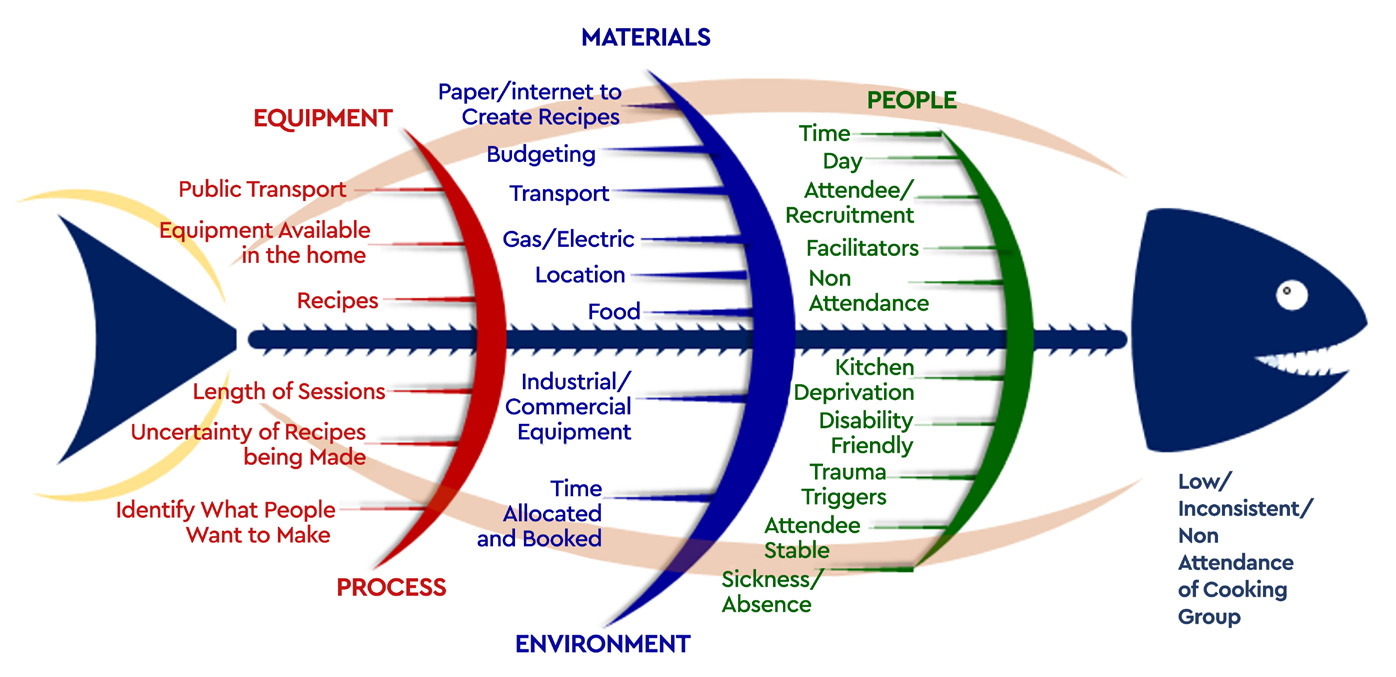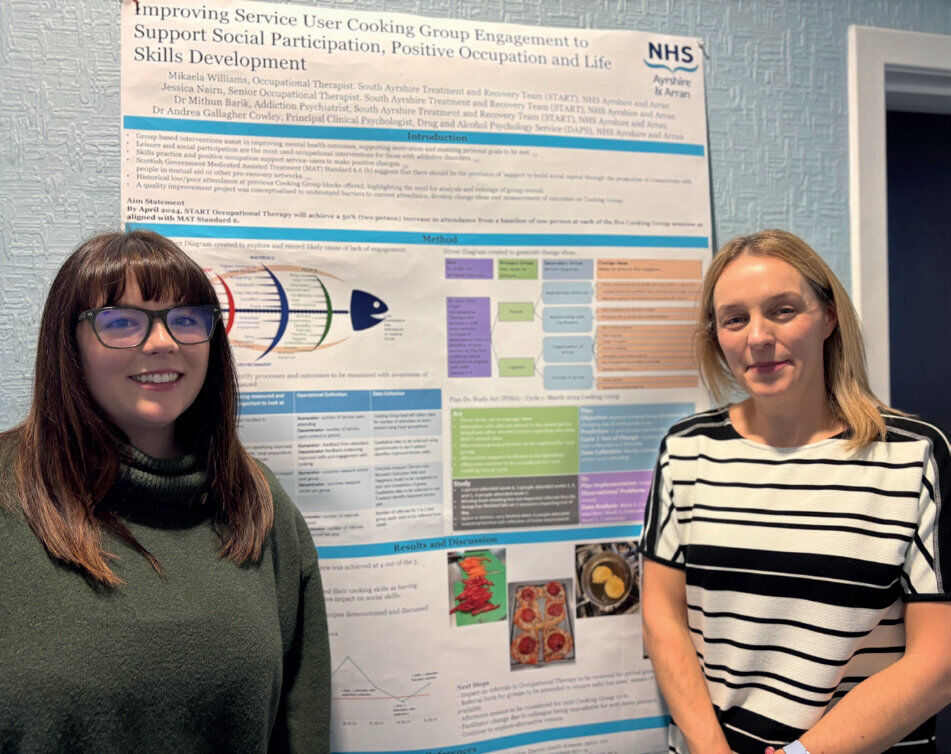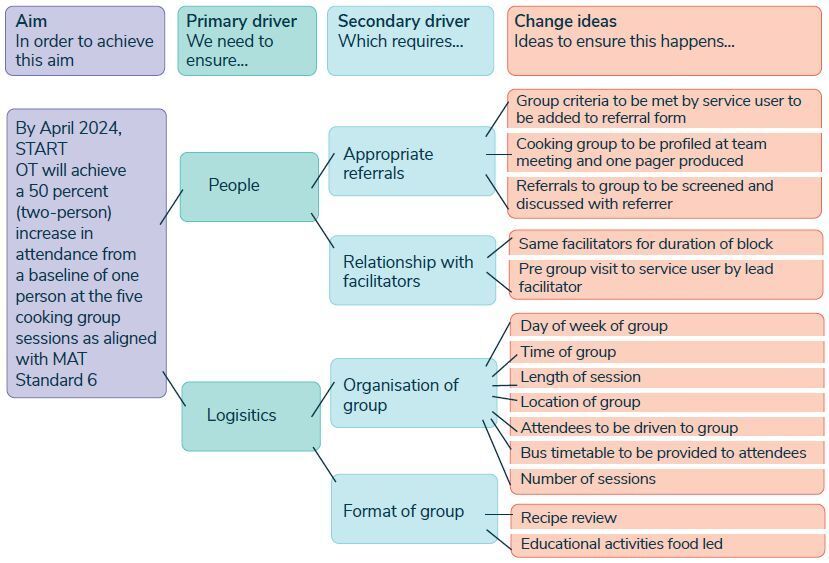Jessica Robson and Mikaela Williams explain how the Ayrshire and Arran Improvement Foundation Skills (AAIFS) Programme has highlighted the importance of looking at an area of practice holistically and how making small, targeted change can have a big impact.
The occupational therapy service within the South Ayrshire Treatment and Recovery Team (START) aims to support the delivery of the Medication Assisted Treatment (MAT) Standards (2021).
Since 2014, there has been a sharp increase in drug deaths in Scotland and in response to this the MAT standards were introduced by the Scottish Government in May 2021, with the aim of reducing drugrelated harm and death through enabling accessible, safe and high standard support and treatment nationally (Public Health Scotland 2023).

© SolStock via Getty Images
Alcohol and drug misuse can affect an individual’s physical and mental health, relationships and employment, as well as their ability to cope with everyday life. Recovery has different meanings to different people, with no two individuals experiencing the same journey.
Referrals to occupational therapy are accepted for individuals who are stable or abstinent in their substance use (drug and/or alcohol use) and are experiencing poor mental health or physical impairment issues, which have a significant impact on their ability to function safely or independently within their local community.
Above left to right: Jessica Robson and Mikaela Williams
There is currently limited evidence, research and awareness of the impact of occupational therapy within the addictions setting. We therefore decided to undertake the Ayrshire and Arran Improvement Foundation Skills (AAIFS) Programme, to help showcase and highlight the value and worth provided by occupational therapy within an addictions environment.
A Quality Improvement approach to practice
AAIFS is a local Quality Improvement (QI) foundation skills course that uses innovative methods to deliver Quality Improvement training. This 12-week programme is open to all employees in NHS Ayrshire and Arran and aims to empower individuals to deliver quality services, reinforced by an ethos of continuous improvement.
The programme develops people’s knowledge and skills in the fundamental aspects of quality improvement, which provides them with the tools and confidence to design and implement Quality Improvement projects and changes to current and future practice.
Different tools are explained and practised, all of which are transferable across all areas of healthcare provision, with virtual and face-toface learning used to deliver lectures and peer support.
Projects are undertaken to implement new skills learnt, and with regular feedback and mentoring in place, the programme finishes with a presentation of each practitioner’s learning journey.
Improving engagement in group interventions
We decided to use group activity as the basis for our Quality Improvement project. Group based interventions assist in improving mental health outcomes, supporting motivation and enabling personal goals to be met (Cole 2014).
Over the previous 12 months, group interventions had been reintroduced to our occupational therapy offer following the COVID-19 pandemic. This included walking, cooking and creative groups, each with varying levels of participant engagement.
We identified the cooking group as the group for quality improvement, due to continuous poor attendance, despite its importance in supporting social participation, skills development and overall positive occupation.
The approaches explored for the Quality Improvement programme were varied. It was decided that, for the project being undertaken, cause and effect and driver diagram approaches would be used to identify the change ideas (see pages 52 and 53).
Measurement plans, and Plan, Do, Study, Act (PDSA) cycles were used to evaluate the change idea and to measure the worth of further change ideas.
The change idea we implemented was to move the cooking group from taking place on a Monday morning to a Thursday morning. The time and length of the group remained the same.
Our evaluation showed that simply by changing the day, overall patient engagement improved, compared with other cooking group blocks.

Above: Our cause and effect diagram, created to explore and record likely cause of lack of engagement
Mentor support was provided throughout the project and a Quality Improvement working group was implemented within the service, consisting of team members who had completed or who were currently undertaking the AAIFS programme.
The working group allowed for rich discussion and differing perspectives to be considered from individuals who had clear understanding of the service, allowing an in-depth perspective of the project to be gained, as well as providing a support network to enable skills to be developed.
Furthermore, line management support ensured that time was allocated for learning each week, as well as regular face-to-face meetings to ensure collaborative working, which reduced pressure and ensured patient experience would be optimised from data gathered.
The AAIFS programme highlighted the importance of looking at an area of practice holistically and making a small, targeted change, rather than making a number of changes at one time.
The experience allowed exploration of new skills that are highly transferable to all areas of occupational therapy practice. This has allowed occupational therapy within the addictions service to identify and optimise its group offer to patients who access the service.
The programme has also helped showcase the work undertaken by occupational therapists and the variables considered within the addictions service setting.
Cole M (2014) Client centred groups. In: Bryant W, Fieldhouse J, Bannigan K (editors) Creek’s Occupational Therapy and Mental Health. London: Elsevier Health Sciences, p.241-259.
Public Health Scotland (2024) Medication Assisted Treatment (MAT) standards. Available from https://bit.ly/3W2ck5y [Accessed 20 June 2024].
Scottish Government (2021) Medication Assisted Treatment (MAT) standards: access, choice, support. Available at https://bit.ly/4fGBdLd
Words JESSICA ROBSON, Senior Occupational Therapist, and MIKAELA WILLIAMS, Occupational Therapist, South Ayrshire Treatment and Recovery Team (START) mikaela.williams@aapct.scot.nhs.uk


